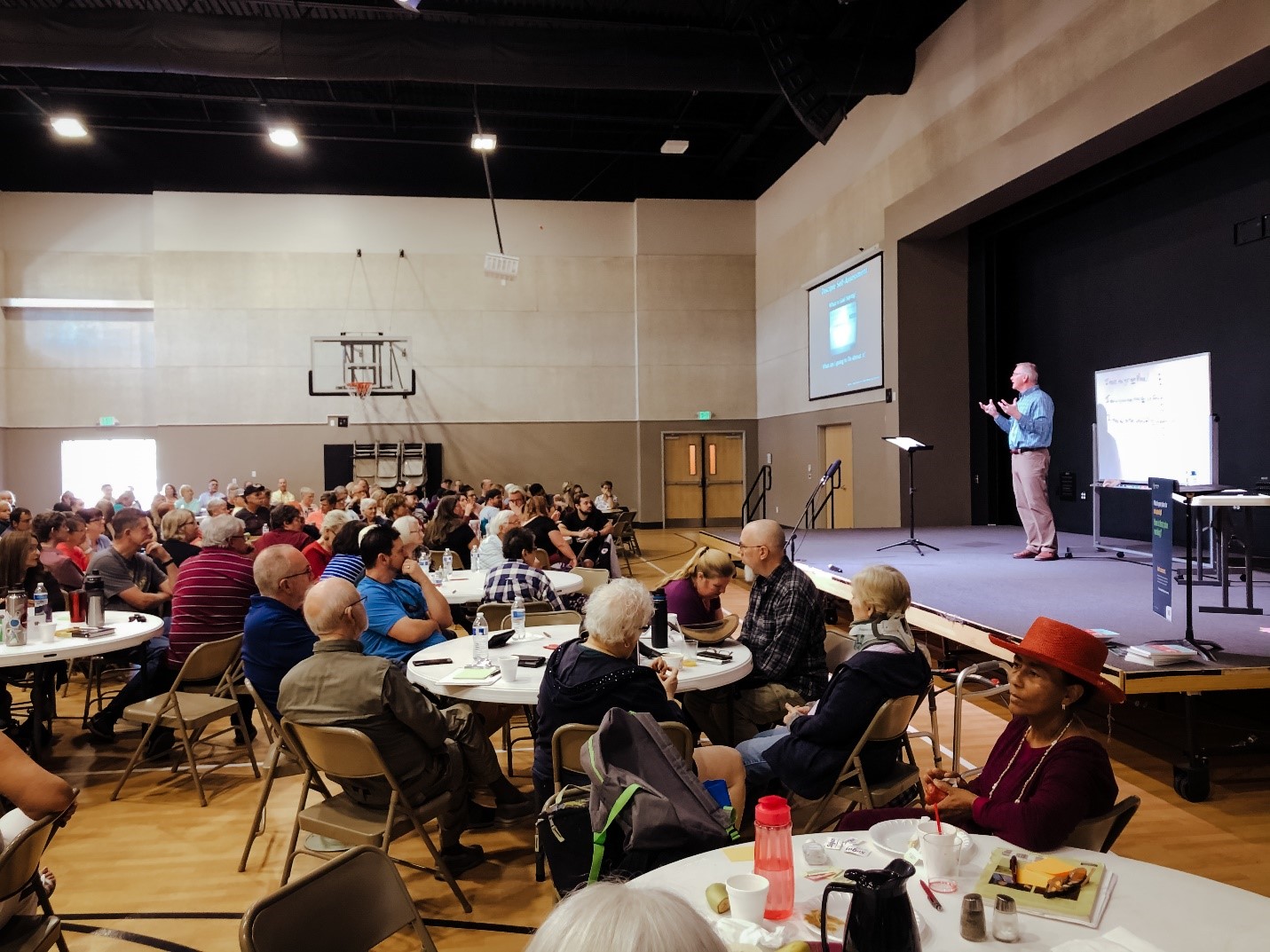T ransformational.
That’s how Randy Wieland, lead pastor at Christ’s Community Church in Glendale, Arizona, described the discipleship coaching that he and other church leaders have worked through.
“The coaching journey has been incredible,” he says. “And as we’ve been sharing in that process, we’ve grown far deeper and closer as a team.”
Discipleship coaching is an opportunity to learn and listen so you can live more like Jesus personally and as a church, says Jeff Allen, who led the process for Christ’s Community. Allen is the Reformed Church in America’s (RCA) lead coordinator for Discipleship, an initiative of Transformed & Transforming, the RCA’s 15-year vision for ministry.
At a May 2019 meeting of the Regional Synod of the Far West (a regional synod is part of the organization of the RCA), Allen made a brief presentation about working with motivated leaders.
“I found that in the area of discipleship, leaders were motivated by one of two things: passion or pain,” he says. “And usually people engage with some form of discipleship because they’re trying to address one of those two things.”
Leaders from Christ’s Community approached Allen after that presentation and clearly had that passion. Allen recalls they said, “We feel like we’ve been on a journey with the church for the last several years, and we feel like pressing into discipleship is one of the key next steps we need to take in order for us to really move forward in our ministry.”
The process
The coaching started in September, with Allen meeting with the church staff for an hour a week. The staff would meet together for another hour and do homework: Scripture reading and reflection, identifying what God was elevating for them personally or for the church, developing clarity around vision and values, and more. It was all part of developing a solid and consistent foundation as a team.
Following a staff retreat, the staff and consistory invited the congregation into the journey of discipleship. It started with a four-week message series. A small group study of A Jesus-Shaped Life by Bob Rognlien for eight weeks followed that. Then, everyone in the congregation was invited to participate in a disciple self-assessment, to see what discipleship was occurring within the congregation and how this came together as a church.
What ended up being one week prior to the COVID-19 shutdown, leaders hosted a three-hour workshop for the congregation to discuss the message series and the individual assessments with staff and lay leaders. More people came than expected to the event—more than 200. Since then, the church hosts discipling groups virtually (they’re called huddles), coaching people in the congregation to be disciples and leaders who will, in turn, coach others to be disciples and leaders.
The result
What appears on paper to be a dry process has, as Wieland said, been transformative, and it has injected the congregation with a new zeal for discipleship.
“This journey has been powerful for our people,” he says. “They’re looking with fresh eyes at the people that they bump into and asking themselves, who am I supposed to be for these people in this context? How might Jesus use me in this relationship?”
Serena Beckman, kids’ ministry pastor at Christ’s Community, has seen the fruit of the process personally. “When you’ve been a Christian your whole life, and you’ve been in the same church your whole life, you can end up in some routines, where you are really committed to doing your daily devotions and you’re really committed to doing all of these things. But when someone asks you what is God saying to you and what are you going to do about it—that kind of interrupts that cycle in a fresh way. So for me personally, it has transformed how I see my faith and where I’m at in my faith journey.”
Discipleship knows no age, so the small groups and discipling groups (huddles) are multi-generational. Youth and young adult pastor Chestly Lunday says, “We can now have the wisdom [of the older generation] and the energy of the youth come together in a way that I don’t think was possible before.”
This discipleship process is not a deep, dark secret. “The methodology can change. Small groups can look different. Huddles are a vehicle. Missional communities are a vehicle,” says Amanda Siegal, the worship arts pastor.
But in the end, it’s all about the Word.
“The gospel is what’s sacred. And the Great Commission is what’s sacred,” Siegal says.
This article was also published in RCA Today, the Reformed Church in America’s denominational magazine.
Be discipled
Interested in discipleship coaching for yourself or your church? Sign up for this online coaching cohort, an opportunity to engage with practical teaching, training, and tactical tools to help you grow in your personal walk with Jesus. The cohort begins November 6.
Jennifer Knott is a writer and editor for the Reformed Church in America’s communication team.



